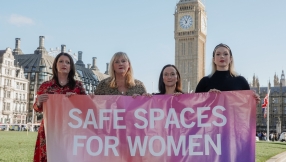Tim Farron's resignation claiming that being a political leader and a 'faithful Christian' has been 'impossible' is sparking questions over whether Christians can ever enter play a leading role in politics.
The Liberal Democrat's speech to announce he was stepping down was greeted with alarm and sorrow by church leaders as he claimed 'we are kidding ourselves if we think we yet live in a tolerant, liberal society'.
Rumours abound as to whether he was pushed out following the resignation of the gay front-bench peer Lord Paddick citing concerns with Farron's 'views on various issues'.
Regardless of the real reason, Farron could have resigned quietly, pointing to the party's minor recovery at the election and saying it was someone else's turn. Instead he went out with a bang, saying he was 'torn between living as a faithful Christian and serving as a political leader'.
He finished: 'Imagine how proud I am to lead this party. And then imagine what would lead me to voluntarily relinquish that honour.
'In the words of Isaac Watts it would have to be something "so amazing, so divine, (it) demands my heart, my life, my all".'
The Archbishop of Canterbury, Justin Welby, described Farron as 'honourable and decent' and said: 'Regardless of party if he can't be in politics media & politicians have questions.'
The Catholic Archbishop of Westminster, Cardinal Vincent Nichols, said he was 'sorry' to read Farron's statement and 'recognises the hurt it expresses'. He said: 'Undoubtedly he has been given a hard time.' The Bishop of Liverpool, Paul Bayes, offered a different tone to his Archbishop.
The Liberal Democrat Christian Forum, a grouping within the party, insisted Christians must still be involved in politics. A spokeswoman said: 'Sadly his resignation reflects the fact we live in a society that is still illiberal in many ways and is intolerant of political leaders having a faith. This urgently needs to change. 'It will only change if Christians step up and get involved in all areas of life and change the rhetoric, whether in politics, media, business, or the arts. We need to bring about a society that is truly liberal – where everyone of all faiths and none are valued and considered equal.' But Theos, a religion and society think-tank, said the resignation 'cast significant doubts about the future of Christians in public life'. A statement read: 'Farron's resignation speech chose to highlight what a growing number of people in Britain now recognise: that it is becoming increasingly difficult for Christians to hold public office. 'In spite of Farron's voting record and his determined and public commitment to political liberalism, he found himself "the subject of suspicion because of what I believe and who my faith is in".' Director Nick Spencer added: 'Farron's resignation is powerful, honest and alarming. Christianity was fundamental to the formation of political liberalism in the West. Liberalism seems now to be hacking away at these roots. 'Liberalism has a much-needed role to play in contemporary society, but it is increasingly being hijacked by those who think that liberal tolerance is only for tolerant liberals. Tim Farron's conviction that the Christian faith is no longer compatible with leading a liberal party is both an indictment of, and warning to, our public life today.' Andrew Wilson, a prominent conservative theologian from the New Frontiers Church, described the statement as 'extraordinary, brave and principled'.













